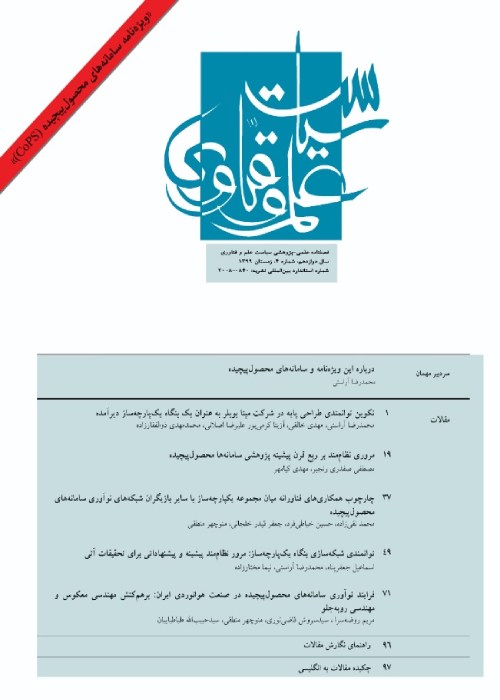A Study of the Existing and the Desired State of the " Scientific Evaluation System" in Iran;Emphasizing the Higher Education Sector
communication technology (ICI) and knowledge economy have increased the importance of the quality debate in the Scientific System. However, there is no comprehensive system for evaluating of the quality of “knowledge prodution system established” in Iran. This requires the consensus of scholars and policy makers, and should be based on international scientific and academic principles and norms, while being relevant to the national context. Anderson, Billing, Busters, Maassen, Tomusk, Vander Wende, Kouwenaar, Vlasceanu, Bazargan and many other researchers at the national and international levels have studied the components of the Scientific Systems and Higher Education Evaluation. By employing a historical, comparative and qualitative research method, This article has developed an appropriate model for a higher education accreditation system (including internal and external evaluation) based on a nonagon model. The historical study shows that quality in Iran’s higher education has always been faced with certain structural and ideo-political obstacles in the form of a huge governmental bureaucracy, a petro-political economy and weak institutions, so that rational and liberalization artivities were often feeble and vulnerable, generally encountering difficult structural challenges as unfinished projects. Using a problem/solution model of categorizing the main challenges of Scientific Evaluation System in Iran, this article proposes nine essential steps for encountering with the afore-mentioned challenges and establishing a comprehensive system for the evaluation of the quality in higher education this includes the four levels of 1. University information system, 2.evaluation system university,3.external evaluation and accreditation, and 4. monitoring the national scientific system. The desired objective of evaluation quality and improvement of the will be only obtained through government playing a supportive and facilitative role of the in developing the required infrastructures for national monitoring of the scientific system; emphasizing internal initiatives of the universities and the scientific institutions themselves in a competitive sphere at both national and international levels.
- حق عضویت دریافتی صرف حمایت از نشریات عضو و نگهداری، تکمیل و توسعه مگیران میشود.
- پرداخت حق اشتراک و دانلود مقالات اجازه بازنشر آن در سایر رسانههای چاپی و دیجیتال را به کاربر نمیدهد.



